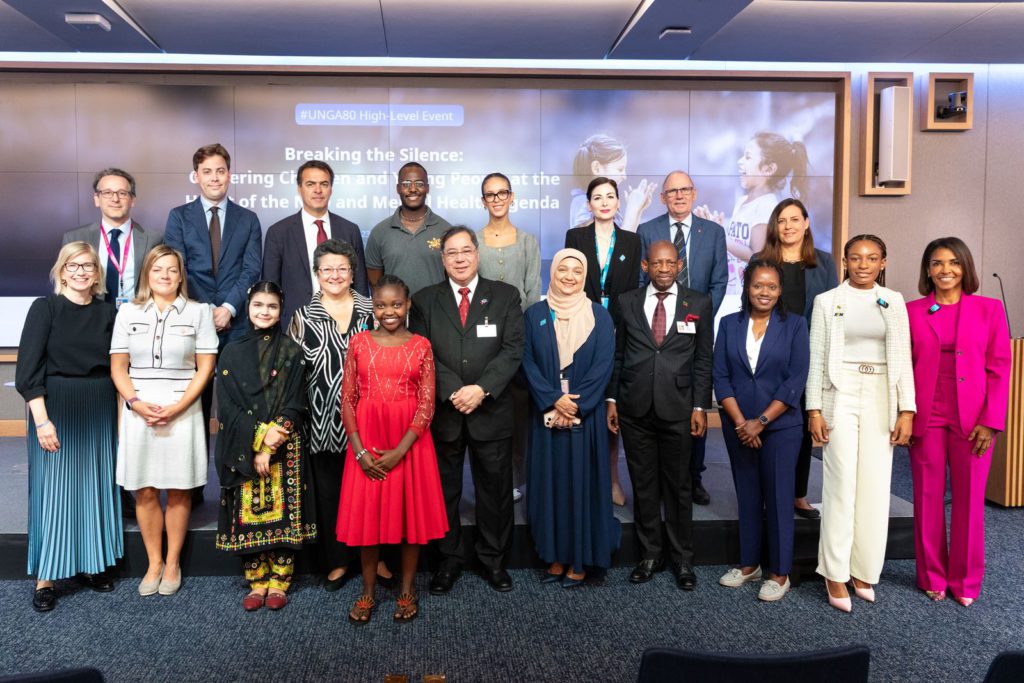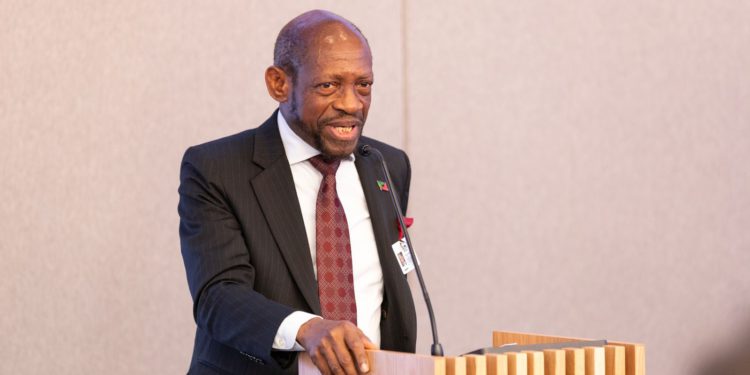United Nations, New York (23 September 2025) On 25 September 2025, Heads of States and Government met at the UN General Assembly to set a new vision for the prevention and control of noncommunicable diseases (NCDs) and the promotion of mental health and wellbeing towards 2030 and beyond through a new, ambitious and achievable Political Declaration. Leveraging this opportunity the Permanent Mission of St. Kitts and Nevis to the United Nations, in collaboration with the Permanent Missions of India and Norway partnered with the United Nations Children Fund (UNICEF), in a High-Level Event to showcase the relevance of children and young people in the fight against Non-Communicable Diseases.
The Fourth UN High-level Meeting on NCDs marks a unique, decennial opportunity to adopt a new, ambitious and achievable political declaration on NCDs and mental health conditions towards 2030 and beyond. Building on evidence and grounded in human rights, the declaration will form the core framework to accelerate global NCD prevention and control from 2025.

According to UNICEF, the “Breaking the Silence: Centering Children and Young People at the Heart of the NCD and Mental Health Agenda” event co sponsored by the Permanent Mission St. Kitts and Nevis to the UN aimed to: 1) Place children and young people at the center of the global NCD and mental health agenda, ensuring their voices and needs inform commitments at the UNGA 2025 High-Level Meeting; 2) Mobilize political will and sustainable financing to address the growing burden of NCDs and mental health conditions among children and youth, and to mitigate the economic, social, and intergenerational consequences of inaction; and . Promote integrated, multisectoral, and equitable solutions that link physical and mental health, strengthen primary health care and community-based services, and address environmental determinants impacting child wellbeing.
The nation’s Foreign Minister the Rt. Hon. Dr. Denzil Douglas told a packed room at UNICEF House that, “as a region, we have implemented several initiatives across our region. In the Organization of Eastern Caribbean States (OECS), countries like Saint Kitts and Nevis, Saint Vincent and the Grenadines, Grenada among others pool our resources to purchase pharmaceuticals in bulk. This reduces the cost of prescription medicine on each island. On the prevention side of things, CARICOM has implemented Caribbean Moves – an initiative to encourage individuals to move, to exercise, to run, and to stretch. As I said, it’s on the prevention side, trying to change the sedentary lifestyles of individuals who otherwise would receive diagnoses of high blood pressure, diabetes and heart diseases.”
Speaking of local action in the fight against NCDs, Dr Douglas, insisted that, “locally, the Government has adopted SKN moves, many 10k walks and runs, hikes and other events are organized to encourage movement. Additionally, coaches from Department of Sports are attached to each school – even private schools. They coach every sport – athletics, football, basketball, netball, tennis, just to name a few. They encourage participation by the skilled and the otherwise skilled to ensure that all students get time to exercise while at school. For decades, the Government has provided some measures of free healthcare for children at Government institutions. All children born in Saint Kitts and Nevis are given their vaccine schedules at no cost to protect them from diseases. Moreover, the Government has been exploring the possibility of implementing Universal Health Insurance. The research has been ongoing, conversations with insurance providers have happened and we are well on the way to Universal Health Insurance Coverage. “
The World Health Organization, ahead of the High-Level Meeting in New York underlined that, “global NCD burden and the urgency of promoting mental health and well-being are no longer just a health system problem. HLM4 calls upon Member States and global partners to renew and reinforce their committed to addressing NCDs and mental health challenges – through stronger whole-of-government and whole-of society collaboration, and by reshaping health systems, supporting sustainable financing mechanisms, and tackling the underlying social, economic, commercial and environmental drivers of risk and inequities.”








